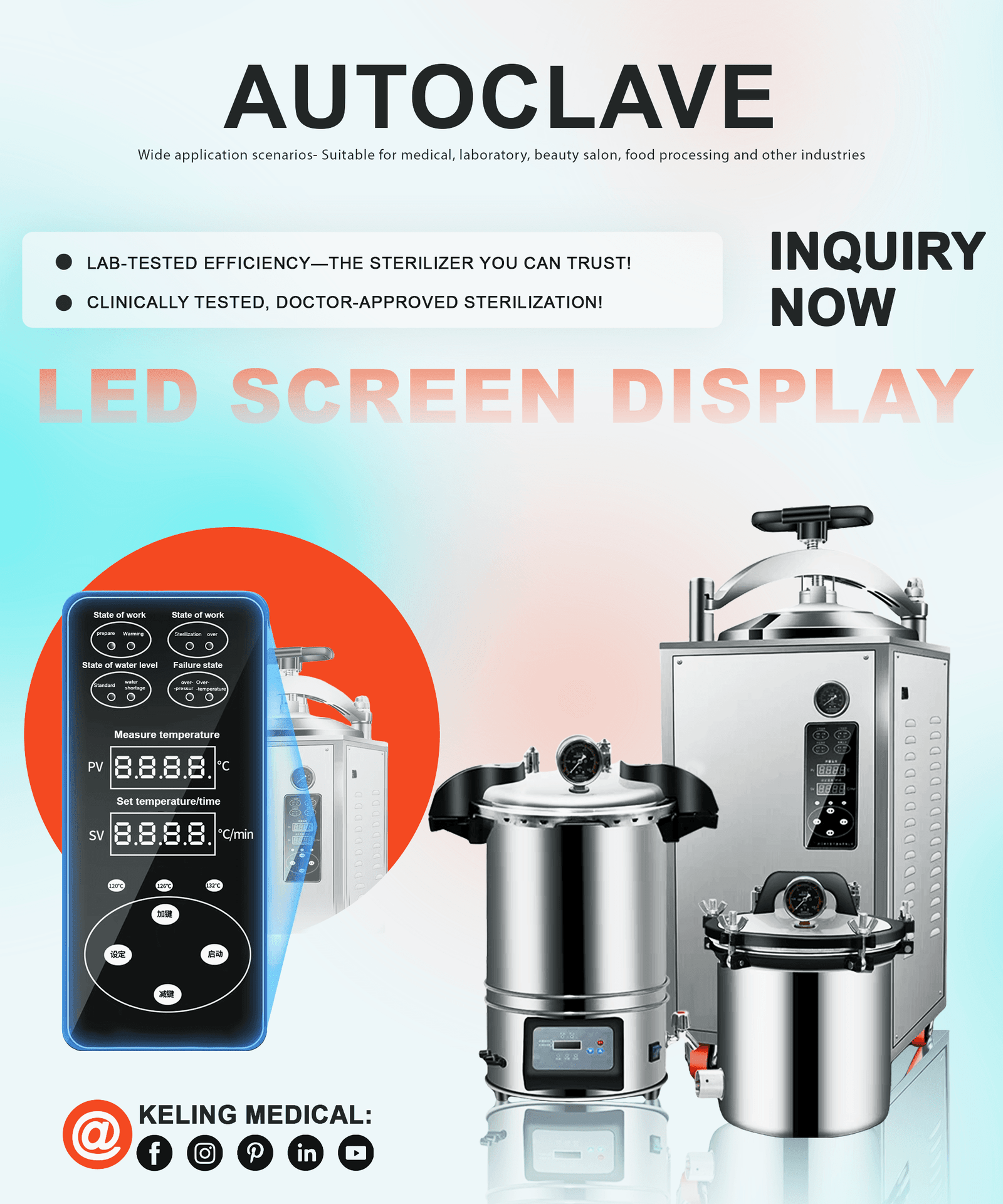
This article defines autoclaves followed by their primary agricultural applications and the advantages they provide to agricultural experts such as equipment distributors and suppliers.
An autoclave functions as a specialized apparatus that utilizes high-pressure steam at temperatures between 121°C and 134°C for sterilizing materials. The combination of heat and pressure successfully removes harmful bacteria and viruses along with fungi and other dangerous microorganisms.
The use of autoclaves in healthcare and research laboratories extends to agriculture where they help maintain sterile farming materials and equipment by removing contaminants.
Soil sterilization represents one of the primary agricultural uses for autoclaves. Soils frequently contain pathogens and pests along with weed seeds which obstruct plant growth and lower crop production. Farmers can use autoclaves to sterilize soil which helps in removing harmful organisms and pests.
The autoclave process removes destructive bacteria along with fungi and nematodes.
Prevent the spread of soil-borne diseases.
Develop a pure growing medium that supports the healthy development of delicate crops including vegetables and flowers.
The value of this process becomes very clear in greenhouse farming because a controlled environment is essential to ensure plant health.
Agriculture uses plant tissue culture to propagate plants in sterile environments. Autoclaves are essential in this process for:
Maintaining uncontaminated growth media requires sterilization of agar and nutrient solutions.
The sterility of tissue culture tools and containers needs verification to prevent microbial growth.
Autoclaves enable successful propagation of genetically identical plants which supports large-scale agricultural production.
Farmers and agricultural researchers utilize autoclaves in plant tissue culture to create superior plants through dependable and efficient production methods.
Pruning shears, seed trays, and irrigation components are agricultural tools and equipment that accumulate pathogen contamination over time. Autoclaves serve as dependable sterilization tools that prevent agricultural equipment from transmitting harmful organisms to crops.
Farmers who sterilize their tools and equipment at regular intervals can:
Reduce the risk of cross-contamination between plants.
Prevent disease transmission throughout greenhouses and agricultural fields.
Tool maintenance that involves cleaning and preventing corrosive substances helps to extend their operational life.
Autoclaves produce optimal plant growth conditions by removing both pathogens and pests from soil and growth media. Healthier crops emerge from this process which leads to reduced disease losses and higher agricultural output.
Agriculture commonly utilizes chemical pesticides and herbicides to manage pests and diseases. The use of these chemicals creates harmful environmental effects and can leave crop residue traces. Autoclaves provide a sustainable sterilization solution that eliminates the necessity for chemicals and supports eco-friendly agricultural methods.
The upfront cost of purchasing an autoclave appears substantial but the advantages gained over time make it a worthwhile investment. Autoclaves enable farmers to lower crop loss and decrease chemical treatment needs resulting in cost savings and better operational efficiency.
Maintaining sterile conditions while propagating and cultivating plants results in superior crop quality that satisfies market requirements. Exporters and suppliers must ensure their products remain free from contaminants.
Autoclaves provide modern agriculture with dependable and effective sterilization methods for soil and tools as well as plant tissue culture materials. Autoclaves advance agricultural productivity through enhanced crop yields and sustainable farming techniques while reducing chemical dependence to fulfill market demands for premium produce.
Agricultural equipment buyers along with distributors and suppliers who invest in autoclaves protect current operations while building capacity for future farming requirements.
We welcome inquiries from anyone who wishes to expand their knowledge about autoclaves and their agricultural uses.
The primary purpose of an autoclave in agriculture is to sterilize materials, such as soil, tools, and growth media, to eliminate pathogens, pests, and contaminants that could harm crops.
Yes, autoclaves are available in various sizes and capacities, making them suitable for both small-scale and large-scale farming operations.
Soil sterilization eliminates harmful microorganisms and pests, creating a clean environment for plants to grow. This reduces the risk of diseases and improves overall crop health and productivity.
Yes, autoclaves are environmentally friendly as they reduce the need for chemical pesticides and herbicides, which can have negative effects on the environment.
You can purchase high-quality autoclaves for agricultural use from Keling Medical. Contact us via email at inquiry@shkeling.com, WhatsApp at +8618221822482, or visit our website at https://autoclaveequipment.com/.
For more information about autoclaves and their applications, contact us today:
Email: inquiry@shkeling.com
WhatsApp: +8618221822482
Website: https://autoclaveequipment.com/
Let us help you find the perfect autoclave solution for your agricultural needs!

The autoclaving process serves as an essential sterilization practice utilized across medical, laboratory, and research facilities to protect glassware and instruments through effective sterilization. High-pressure steam eliminates pathogens during this

The autoclaving process serves as an essential sterilization practice utilized across medical, laboratory, and research facilities to protect glassware and instruments through effective sterilization. High-pressure steam eliminates pathogens during this
The autoclaving process serves as an essential sterilization practice utilized across medical, laboratory, and research facilities to protect glassware and instruments through effective sterilization. High-pressure steam eliminates pathogens during this
The autoclaving process serves as an essential sterilization practice utilized across medical, laboratory, and research facilities to protect glassware and instruments through effective sterilization. High-pressure steam eliminates pathogens during this
The autoclaving process serves as an essential sterilization practice utilized across medical, laboratory, and research facilities to protect glassware and instruments through effective sterilization. High-pressure steam eliminates pathogens during this
The autoclaving process serves as an essential sterilization practice utilized across medical, laboratory, and research facilities to protect glassware and instruments through effective sterilization. High-pressure steam eliminates pathogens during this